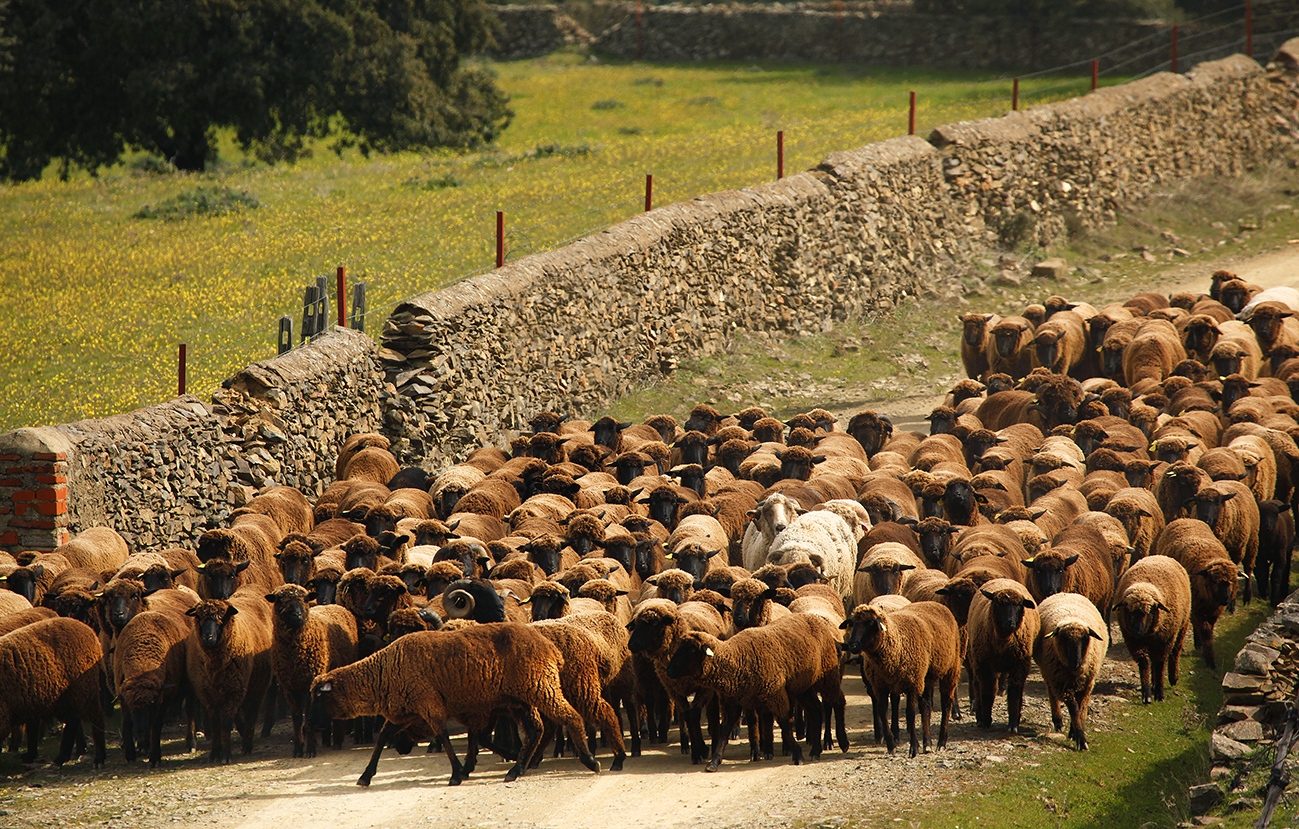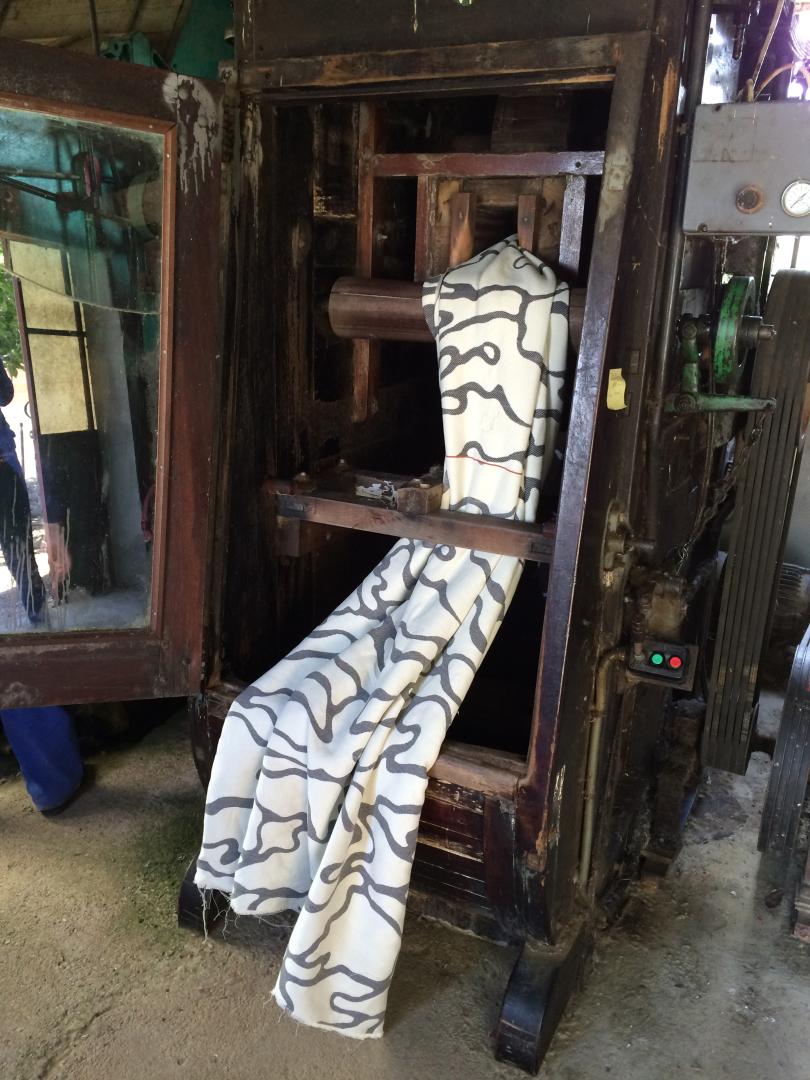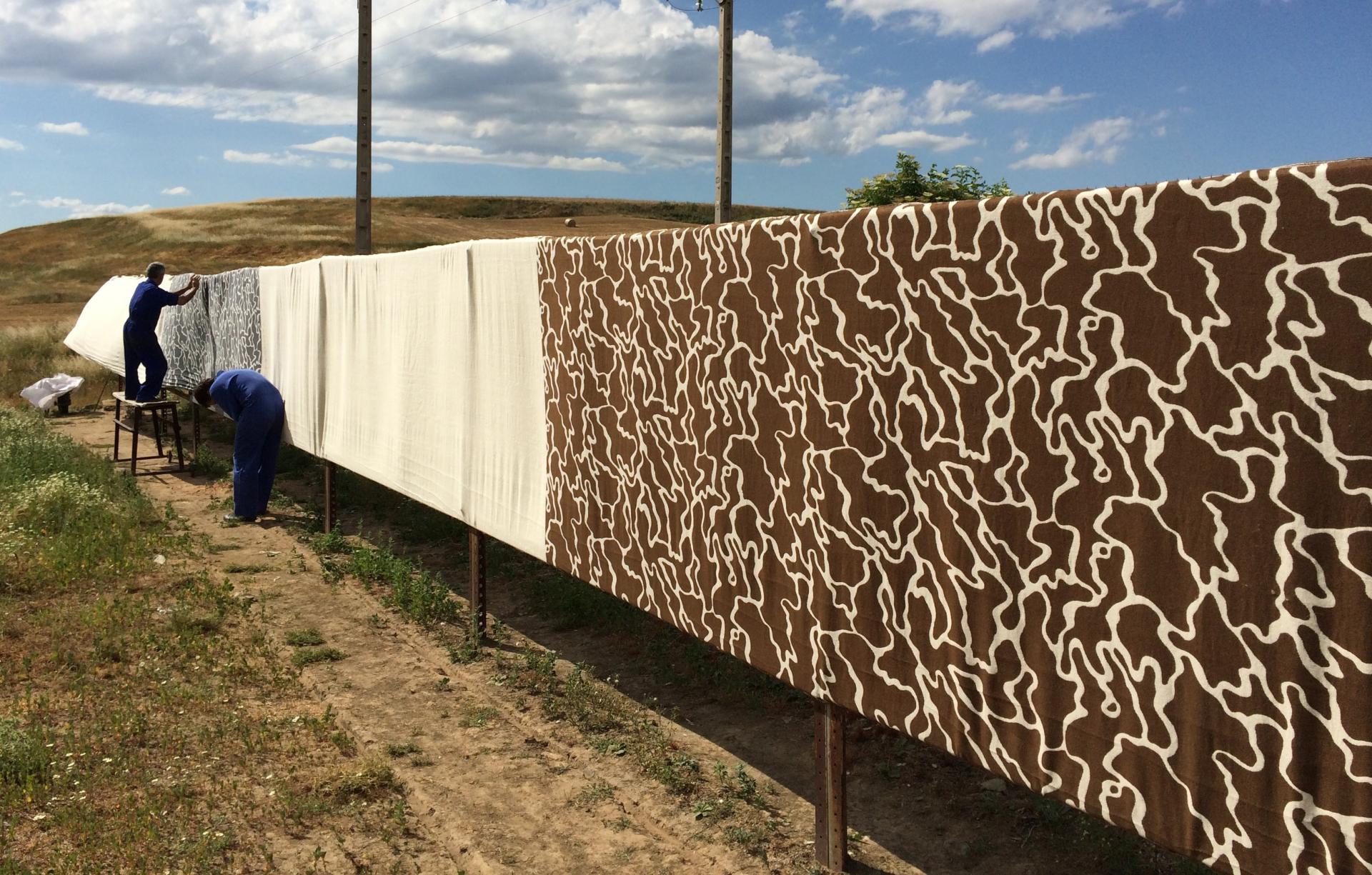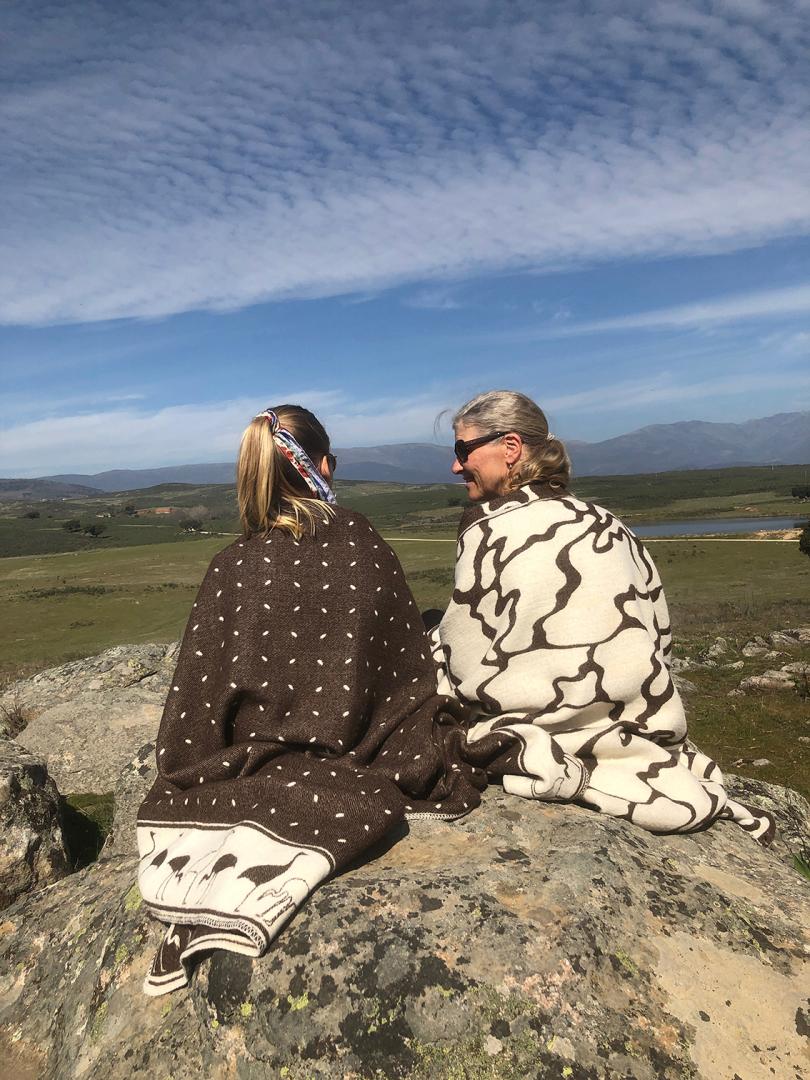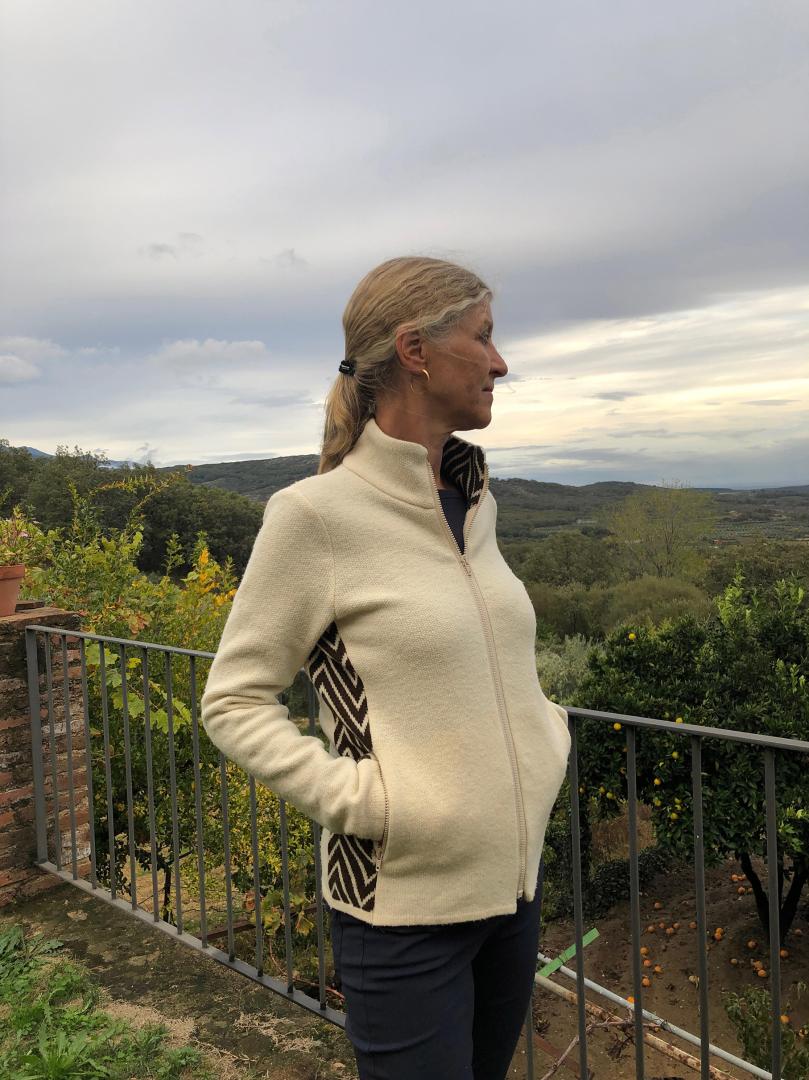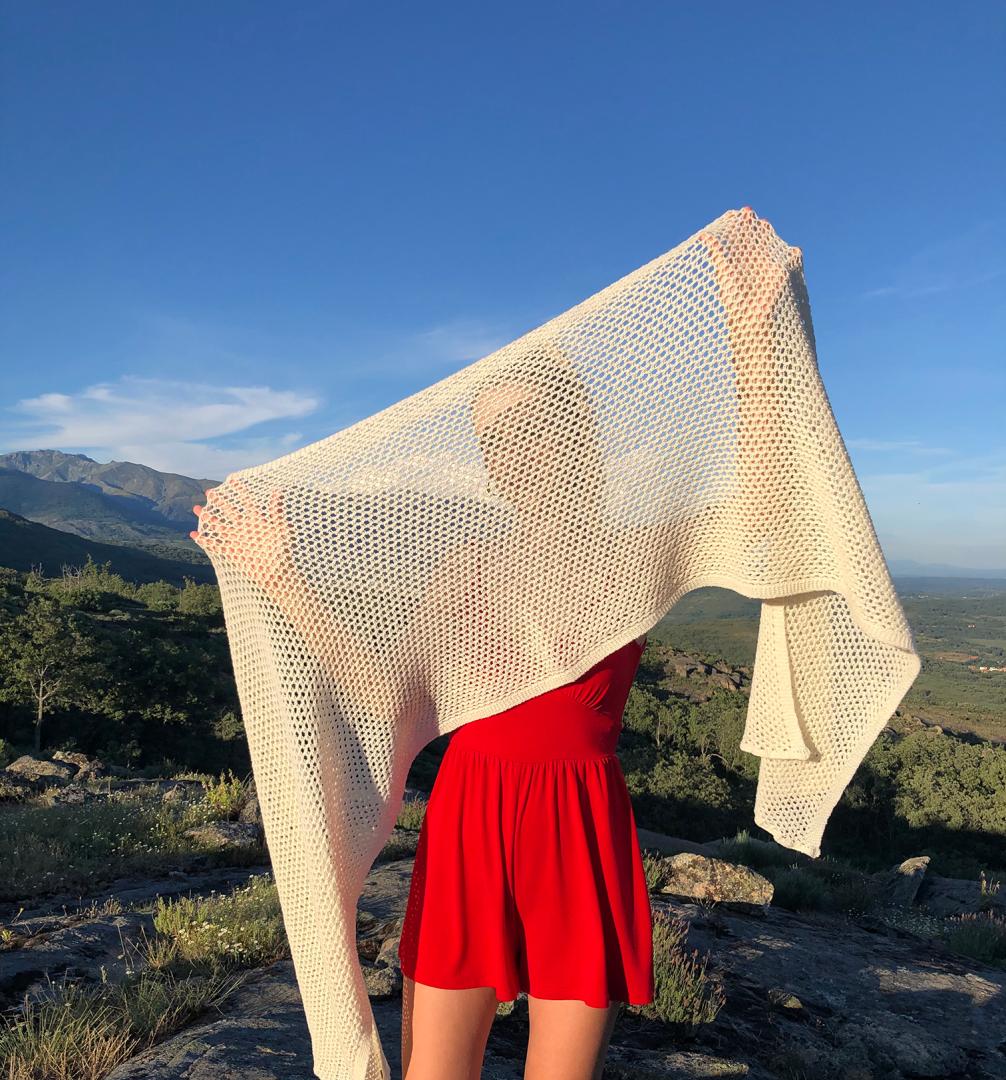The Extremerinas Project
Basic information
Project Title
Full project title
Category
Project Description
The Extremerinas Project arose from a passion to revalue Spanish transhumant Merino wool from the Extremaduran pasturelands and give visibility to this unique fibre. Whilst giving much needed support to traditional extensive and transhumant livestock systems, important tools to help combat climate change. This project has generated a high-quality locally produced collection of Merino wool products, that combine modern design with traditional craftsmanship.
Project Region
EU Programme or fund
Description of the project
Summary
The Extremerinas Project was started in 2014 in Extremadura, Spain, by textile designer Charlotte Houman and Concha Salguero, project coordinator with the Asociación Trashumancia y Naturaleza.
It came from a shared passion for working with the superb wool from the flocks of Merino sheep found in the dehesa, the extensive pasture areas of Extremadura. Joining them in this project, the sheep breeders Ganadería Cabello-Bravo made available the first batch of wool.
The key objective is to protect the extensive and transhumant livestock system in Spain and conserve the traditional symbiotic relationship between humans, animals and nature. Sustainable grazing helps to combat climate change; grasses play an important part in absorbing and storing carbon. Migrating sheep are spreaders of biodiversity, preventing fires, maintaining a healthy soil structure, combating erosion, improving the water cycle and reducing the consumption of industrial feeds, the causes of many greenhouse gas emissions.
By using the wool of these transhumant Merino sheep, the Extremerinas Project is working to restore the value and prestige that Extremaduran merino wool had had historically, in order to avoid it ending up as simply a by-product for export at low prices, as has been the norm for the last few decades.
Contemporary digital design is combined with craftsmanship, modernity with tradition, by working with local artisans and small family owned factories, giving life to a sector of ancient practises, (washing, spinning, weaving, knitting and fulling), which creates and maintains employement and encourages a Circular economy in rural territories.
Working with Merino wool the Project helps to protect a native breed in danger of extinction, such as the black merino sheep which originated in Extremadura.
This collaboration has generated a high quality collection of local produced wool products using only 100% natural and traceable raw materials.
Key objectives for sustainability
All of our raw material (Merino wool) must be 100% traceable. Originating from specific herds, bred in sustainable, extensive and transhumant systems.
One herd is from Ganadería Cabello-Bravo. This herd is the endangered Black Merino and is bred in the Dehesa, the enormous Extremaduran pasture lands. The flocks of Merino sheep are raised in their natural environment, the open countryside, grazing freely in ideal conditions for animal welfare, providing benefits that affect the health of the flock and the ecosystems.
The sheep, as well as encouraging unique landscapes of exceptional beauty, create the habitats where endangered species live, and without grazing, these habitats and species would disappear. In this way, the sheep maintain day-to-day Ecosystems of High Natural Value recognized and protected by the European Network Natura 2000, which protects unique species and habitats on our planet.
The other herd is White Merino, managed by the Asociacíon Trashumancia y Naturaleza. This is a transhumant herd, walking twice a year almost 500 km between the Sierra de Madrid and Picos de Europa in the North of Spain, in search of the best and greenest pastures.
All production is local and ethical, involving small family owned factories and local artisans.
Only 100% natural fibres are utilised, thus avoiding synthetic yarns and fabrics, which produce large amounts of microplastics when they are washed, generating waste that ends up polluting rivers and seas. Furthermore, the production of synthetic fibres is itself highly polluting.
The Merino wool has unique qualities: it is thermoregulating, insulating, water repellent; it is soft, durable, natural, light-weight, breathable and is suitable for babies and people who are allergic to chemical substances. It is a 100% sustainable and biodegradable material, and it is found in abundance in Spain, thus avoiding importation from abroad and reducing the industry´s carbon footprint
Key objectives for aesthetics and quality
All products are functional, durable, aesthetically pleasing and of the highest quality. They are not following any trend, it´s slow fashion made to last.
Aside from these factors they represent a sense of inclusion in an ancient tradition.
Product list:
Jacquard woven blankets.
Wool fleece jackets (the star product in the collection, which is supposed to replace traditional polyesther fleece jackets)
Sweaters
Shawls/scarves
Butterfly shirts
Kimonos
Hats
wool collars
And so, “pulling on the same thread” we are working to create other merino wool products, focused on the world of slowfashion, and expand the collection, covering a wide range of garments for all seasons.
Key objectives for inclusion
Only small local factories and artisans are involved in the production of the products, such as wool washing and combing, spinning, weaving, fulling and knitting factories. Most of them family owned for generations with a lot of experience.
All of our artisans are treated with respect, and paid a premium rate for their work. We appreciate slowfashion and show respect for the good craftsmanship.
Employment in rural areas has been maintained and created.
Results in relation to category
Our products are sold from our online shop, sales are growing steadily. https://charlottehouman.com/shop/?lang=en
We undertake specific commissions and design projects for a variety of private and public companies.
We have had a significant interest from local public bodies as well as local, regional and national news organisations. These include media interviews, articles, television appearances and video spots.
2018 Honourable Mention Award in “IV World Rural Innovation Award”, Extremadura, Spain.
How Citizens benefit
We are creating and maintaining much needed new employment opportunities in rural areas. Our traditional production methods are very ‘hands on’. From sheep breeders and shepherds to the final product there are a number of skilled processes that the wool goes through; shearing, washing, combing, spinning, weaving, knitting and sewing.
Customers benefit from knowing that they are supporting local businesses whilst enjoying the quality of sustainable natural materials.
By buying an Extreminas product designed by Charlotte Houman, the customers support the local economy, protect nature through supporting sustainable livestock practices, reinvigorate traditional skills and help to create a Circular economy. Thus being part of a sustainable circle.
Innovative character
The project combines cutting edge modern computer aided design with traditional craftsmanship.
The old and the new are innovatively intertwined, the raw material is prepared by hand using ancient skills before being woven on modern digital looms and knitted on knitting machines.
The products are then marketed online via digital media.

